A child is both a hope and a promise for Mankind, aptly said Dr. Maria Montessori.
This line may sound simple, but if you read it closely enough you will realize how curious and amazing our little children are. A child has unlimited potential and it is up to us as parents to make sure we give them wings to grow and explore in a happy, safe and positive environment.
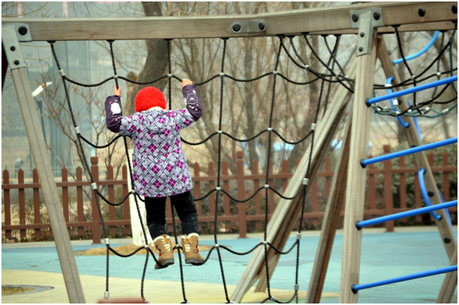
With this thought in mind, I began my extensive research on Early Learning and Montessori. And every time I read something about this subject, I was left completely awe-struck! I began our Montessori journey at home with my child with baby steps, making small changes to our everyday life. The result - I am incredibly thankful that I left my preconceived notions behind and started following my child's cues instead.
Today, I am very happy and excited to share all my info on Montessori training with you amazing parents! I hope this month-long series will be helpful to you and your kids. So without much ado, let's get started!
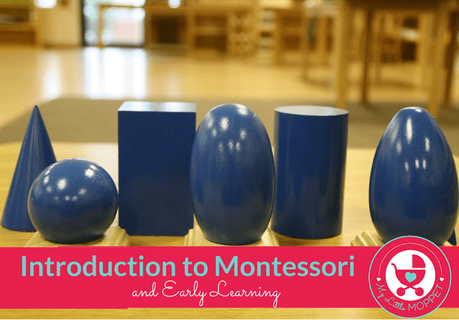
When I talk about Early Learning or Montessori, parents often feel that it is a system that revolves only around teaching. But the Montessori philosophy goes much deeper than this; Montessori is a way of life, and a vision of childhood. Wow, that is pretty deep, isn't it? Allow me to simplify it for you!
Very simply put, "Montessori" is not just a method of learning or an education system - it is "life preparation", and starts at the very beginning - from birth. It is all about providing a wholesome and heuristic environment for your child to nurture his independence, creativity and a sense of "being". As parents, it is our responsibility and privilege to provide our children the best possible start to their amazing life.
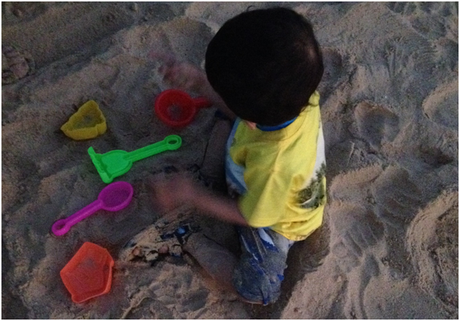
0-6 years is considered a child's "foundation stage", and his future depends upon these crucial early years. It is up to us as parents or caregivers, to make sure that we support, love, listen and respect our children so that they are better prepared to face the world outside. It isn't just about teaching the child ABCs or numbers or shapes or colors, but it is also about observing their needs and interests and providing them an environment which will help them grow into independent, creative little humans.
Dr. Maria Montessori, the founder of the Montessori system, believed that children learn best when they are allowed to use their natural instinct or curiosity. We often underestimate their creativity, imagination and intelligence because our social conditioning causes us to believe that children need help all the time. We often think that children are too small to do anything for themselves and due to this thought, we end up hindering their creativity and natural instincts. And worse, we make them believe that they are incapable and need help all the time.
But nothing could be farther from the truth! If we look closely, we will realize that our kids are more than capable; they're creative too! Their minds are like an absorbent sponge ready to learn and explore what they want to (and not what we want to teach them!).
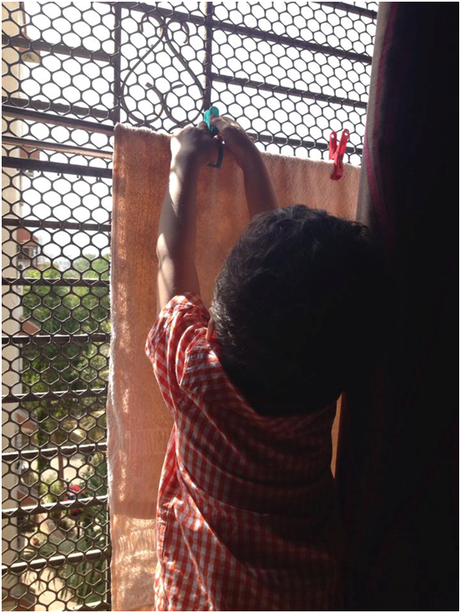
Every child wants an opportunity to explore, not to kill time but to involve himself productively in it. Learning is a child's natural instinct and his naturally curious, inquisitive mind makes use of every single opportunity he gets. It is amazing how babies and toddlers pay no attention to plastic or blazing musical toys, but attentively focus on its cardboard packaging instead. A young child will try to study it, play with the bubble wrap and might even try to tear it. This is the kind of environment he needs to explore and enrich his mind along with your presence.
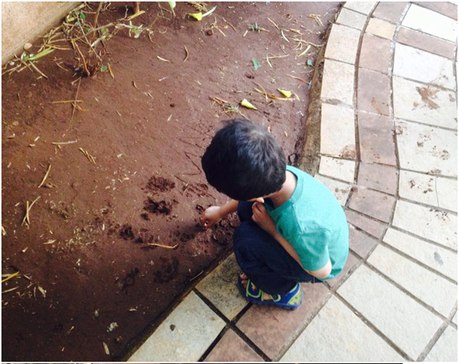
Children give us enough clues and cues, and if we follow even a few of them, we will be able to provide an environment where a child can nurture and bloom. Young children are a testament to the mind's awesome ability to absorb information from all around them.
"The 'absorbent mind' welcomes everything, puts its hope in everything, accepts poverty equally with wealth, adopts any religion and the prejudices and habits of its countrymen, incarnating all in itself. This is the child!" - Maria Montessori
So what can we, as parents, caregivers and teachers do? We can be there when they need us. Not as an authoritative dictator, but as a gentle and mindful facilitator. We need to believe in their strengths. We need to trust them, have faith in them, and most importantly be patient with them. We can provide a "prepared environment" which helps them to explore (in a safe environment) and enjoy their independence.
I often get asked how I can implement "Montessori" at home without spending a lot of money buying expensive supplies. I will talk about this in detail in the next article, but to give you a quick answer - Montessori philosophy can be beautifully implemented at home by involving your child in daily household chores. Yes, they might spill things and create a mess. But all this is part of the learning process and should be accepted as part of the package!
Montessori is a philosophy that goes far beyond classroom walls. It is easy to integrate Montessori into our homes as this is where you will find a majority of practical life skills! As the name suggests, these are basic tasks like washing vegetables, setting the table, sorting and folding laundry, watering plants and so on. By involving kids in daily chores you are giving them the importance they deserve, and helping them learn how a home works on a daily basis.
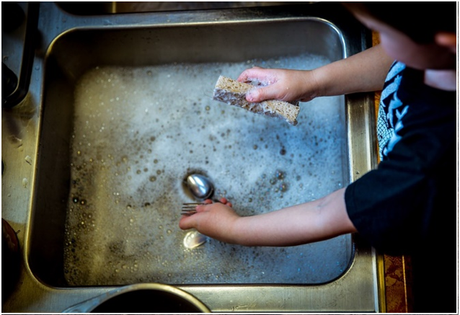
Here I would also like to mention how important it is to protect a child's self-esteem. Self-esteem grows as the children discover they can do things for themselves, when they can enjoy their independence without being scrutinized all the time. We can achieve this by providing a prepared environment to the child, and by being patient and gentle. More on this next week!
I don't want to paint a rosy picture here, because it's not! Changing our set parenting patterns is not an easy task to do and requires a LOT of patience. We might feel like giving up (I feel that a lot too!), but it's important to stay committed. Parenting is tough. Period. But the choices we make for our children and our family can truly help us to enjoy this journey. And most importantly, it will make our children happy, creative and well-behaved humans.
The whole philosophy of "Following your child", "Giving him an outlet to creatively stay engaged versus putting him in front of an IPad / TV" will make us feel happier and satisfied as a parent and show positive results in your child's behavior, focus, concentration, creativity, self-discipline, problem-solving skills and much more.
Again, remember that every child is different and we are here to do what is best for our child! Don't focus too much on the results and instead enjoy this wonderful journey called parenthood!
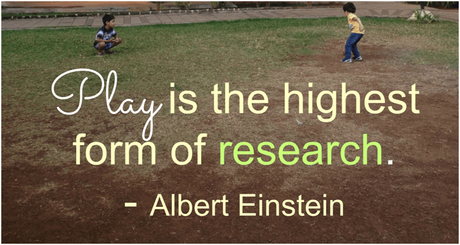
Author
 Amruta Ram has pursued her post-graduation in Marketing & Cosmetology. She used to be a professor at a reputed college in Mumbai, before going on to head PR and Marketing for an International cosmetic brand. After the birth of her child, she extensively studied the concept of early learning, gentle parenting and Montessori. She left her high-profile corporate job to pursue her passion for Early Learning. She is the first Indian mom to start a YouTube channel on Early Learning and Montessori! She loves to document her Montessori - inspired journey on her channeland has helped 1000's of moms to enjoy this journey at their homes.
Amruta Ram has pursued her post-graduation in Marketing & Cosmetology. She used to be a professor at a reputed college in Mumbai, before going on to head PR and Marketing for an International cosmetic brand. After the birth of her child, she extensively studied the concept of early learning, gentle parenting and Montessori. She left her high-profile corporate job to pursue her passion for Early Learning. She is the first Indian mom to start a YouTube channel on Early Learning and Montessori! She loves to document her Montessori - inspired journey on her channeland has helped 1000's of moms to enjoy this journey at their homes.
You can check her YouTube channel here: www.youtube.com/mummadiaries
She also blogs atwww.mummadiaries.comwhere she offers Free Printables for Toddlers and pre-schoolers.
